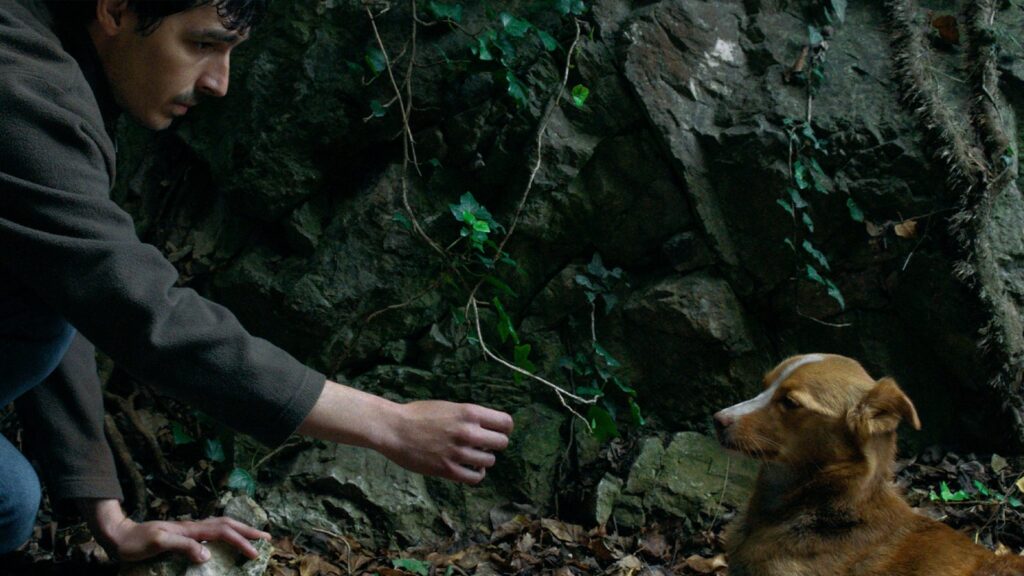Title: Wind , Talk to Me
Foreign Title: Vetre, pricaj sa mnom
Year: 2025
Country: Serbia/Slovenia/Croatia
Language: Serbia/Slovenia/Croatia
Director: Stefan Djordjevic
There is hardly anything dramatic in this film, no overt conflict, no heightened drama. The dialogue is sparse, the acting minimal, the shots are long, and the camera doesn’t move much. And yet, it draws the viewer in, making them think and feel.
Stefan is mourning the death of his mother and, consequently, the breakup with his girlfriend. He travels to the family’s lakeside cabin to celebrate his grandmother’s 80 birthday with the remaining members of his family, and with their help, to complete a film he was making about his mother.
On the way to the cabin, troubled and full of remorse, Stefan accidentally hits a dog. The injury isn’t fatal; he rescues the animal and brings it to the cabin, where it soon becomes part of the family. As the story unfolds, the dog emerges as a quiet catalyst for Stefan’s, and the rest of the family’s, recovery and healing.
This is a film within a film: an original, form-breaking work that shifts between intimate memories of conversations with his mother, a new-age hippie who often spoke about spirituality, and tender, poetic, sometimes awkward interactions with his immediate family. Together, they slowly repair the old cabin, both physically and metaphorically, clearing away the mother’s belongings so that Stefan can move in. The family is played by Djordejevic’s real relatives, in the very cabin where his mother once lived, further blurring the line between documentary and fiction, giving the film its uniqueness.
Poetic and meditative, the film challenges the audience with its gentle pace and perspective. Nature is present on many levels, including the soundscape. The mother’s new-age worldview and the rustic environment weave together into a single stream of existence. With almost no dramatic events—the most “dramatic” moment being the dog chewing up the mother’s diary—the film gradually shifts from the dense grief of the opening to a quiet, uplifting serenity by the end, almost imperceptibly.
Made with delicacy and intelligence, Wind, Talk to Me finds the universal within the ordinary. Family, love, loss, reconciliation—all flow through the most modest acts: repairing a cabin, clearing a room, sharing a meal. It is a film that breathes rather than declares, and in its breath, we find space to reflect, remember, and mend.




